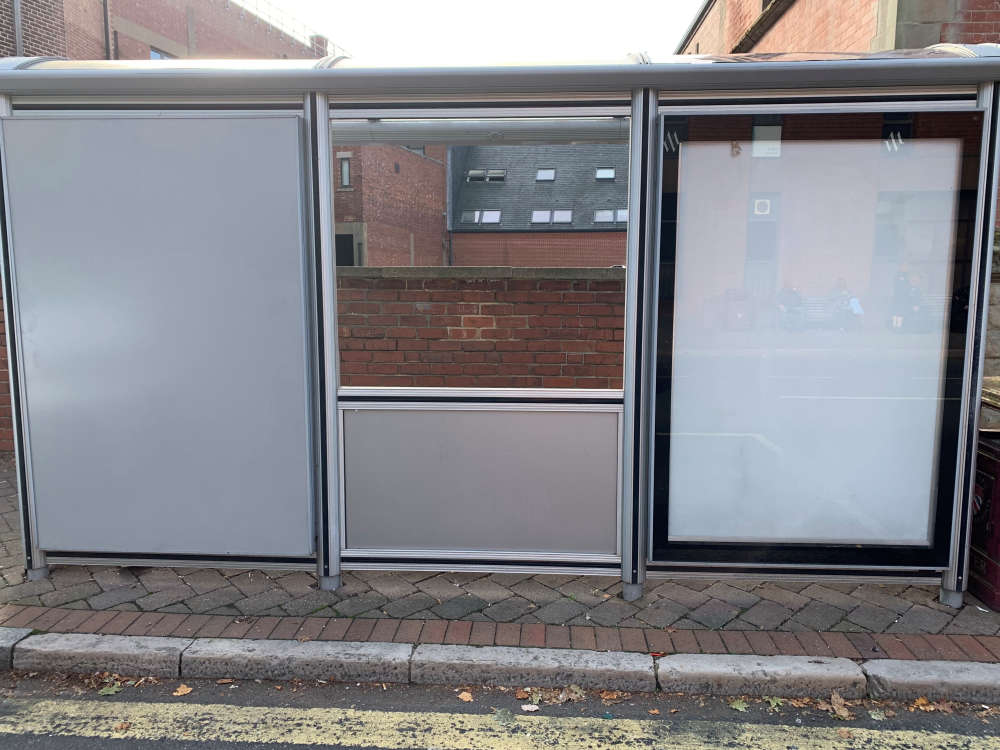Last updated at 1435 on 21st MarchErewash Sound brings you a round up of what matters most during the pandemic as your genuinely local radio station.
ALL VIRUS RESTRICTIONS HAVE ENDED (ENGLAND):
The Government has announced that all COVID-19 restrictions have ended in England with free mass testing coming to an end as of April 1st 2022 for everyone except those are classed as 'vulnerable'From February 21st, guidance for staff and students in most education and childcare locations to take asymptomatic testing has ended.From February 24th:if you test positive for COVID-19, you will no longer need to self-isolate, however, you should stay at home and avoid contact with other for at least five days.contact tracing will cease meaning that fully vaccinated close contacts and under-18s are no longer legally required to take daily tests for seven straight days.if you are on a low income, and test positive, you will no longer be entitled to £500 in isolation supportIncreased statutory sick pay will apply for a further month.From March 18th, the Government has removed the remaining restrictions on international travel for all passengers. There is more information here.From April 1st:Free mass testing (both symptomatic and asymptomatic) for the general public will end, but will still be available for those deemed the most vulnerable in society. It has been reported that approximately half of those infected actually come forward for testing and, as a result, are never asked to isolate. Of the proportion that DO come forward, a fifth are reported to have admitted not adhering to guidance regarding isolation.If you show COVID symptoms, you will be asked to give the utmost consideration to staying at home unless you are told to do so.Government guidance currently in place surrounding COVID passports will come to an end and COVID passes will no longer be recommended to access venues but will still be recommended for international travel.In the workplace, employers will no longer be required to consider COVID-19 as part of health and safety management procedures.Other measures:
Local authorities (England) to become responsible for managing outbreaks using pre-existing powers.The Office for National Statistics infection survey is set to be replaced with a so called 'surveillance programme'.Face coverings:General use: There is no longer a legal requirement to wear a face covering. The government suggests that you continue to wear a face covering in crowded and enclosed spaces where you may come into contact with other people you do not normally meet.Schools: Face coverings are no longer advised for staff and pupils in communal areas of secondary schools, nor for staff in communal areas of primaries. Directors of Public Health will only be able to recommend pupils and staff wear masks in communal areas in places where there are outbreaks of where the local public health situation justifies it, and with sign-off from the Education Secretary. Already in place is the steer that face coverings are no longer advised for staff and pupils in secondary school and college classrooms.Hospitals, doctors etc: Masks are required in these locations.COVID passes: Venues and events are no longer be required by law to check visitors' NHS Covid passes. Some venues may still choose to run the pass voluntarily and request it and may reserve the right to disallow entry to their own premises.
Isolating with COVID:
As of Monday 17th January, those who are self-isolating with COVID-19 have the option to reduce their isolation period after 5 full days if they test negative on both day 5 and day 6 and do not have a temperature.Individuals who are still positive on their rapid lateral flow tests must stay in isolation until they have had 2 consecutive negative tests taken on separate days. This reduces the chance of still being infectious.The decision has been made after careful consideration of modelling from the UK Health Security Agency and to support essential public services and workforces over the winter.The first test must be taken no earlier than day 5 of the self-isolation period, and the second must be taken the following day. If an individual is positive on day 5, then a negative test is required on day 6 and day 7 to release from isolation.It is essential that 2 negative rapid lateral flow tests are taken on consecutive days and reported before individuals return to their job or education, if leaving self-isolation earlier than the full 10-day period.For instance, if an individual is positive on day 5, then a negative test is required on both day 6 and day 7 to release from self-isolation, or positive on day 6, then a negative test is required on days 7 and 8, and so on until the end of day 10.Those who leave self-isolation on or after day 6 are strongly advised to wear face coverings and limit close contact with other people in crowded or poorly ventilated spaces, work from home if they can do so and minimise contact with anyone who is at higher risk of severe illness if infected with COVID-19.The default self-isolation period continues to be 10 days, and you may only leave self-isolation early if you have taken 2 rapid lateral flow tests and do not have a temperature in line with guidance.More information: Self-isolation for those with COVID-19 can end after 5 full days following 2 negative LFD tests - GOV.UK (www.gov.uk)
ISOLATING: What does it mean and what is required?
Stay at home - do not venture out (Do not go out to work. Order groceries on line where possible or ask someone to shop for you, knock on your door and leave it on the doorstep)Do not take visitors into your home for the duration.Keep your distance from other any other household members. Sleep and confine yourself to one room, Where another bathroom/toilet is available, use this in isolation. If this is not possible, carry out basic cleaning regimes regularly and/or after use. Ask any other householders to carry out basic cleaning regimes such as wiping regular touch-points and cleaning crockery, glasses and cutlery.Open windows and doors to ventilate the property. During cold weather, do this frequently to help ventilation. Leave windows open in other rooms to help.Failure to adhere to isolation procedures can lead to fines of between £1,000 and £10,000.TESTING AND VACCINES:.
Self-testing: The advice for anyone attending a crowded place or going somewhere with persons at greater risk is to firstly test for COVID-19. Anyone testing posting should immediately self-isolate and cancel any plans. Anyone who has been in contact with a positive Covid case, and is fully vaccinated, now has to take lateral flow tests for seven days. Boosters and vaccines:Vaccination sites across Derby and Derbyshire are now offering appointments to eligible people as part of a spring booster campaign to protect against Covid-19. For more details, click here.Vaccines are not mandatory, except for NHS staff (with exceptions) who MUST be vaccinated by 1st April 2022. Care home staff MUST already be vaccinated.NOT HAD A VACCINE? You can still book an appointment but you MUST wait eight weeks betwen the first and second injection. Appointments are available for everyone aged 12 and over. Call 119 or visit a walk-in clinic where available.Pregnancy: The Government is appealing to unvaccinated pregnant women to come forward - see above.5-11 year olds: A graded, low dose of the Pfizer vaccine has been approved for children aged 5-11 IF they have health conditons that put them at a greater risk of contracting coronavirus, Children of primary school age who live with a vulnerable adult should also be offered a vaccine. For more information, click here12+: Children aged 12+ are being offered two doses of the Pfizer vaccine. They will be asked to attend for a second dose three months after the date of their first dose. 12-15 year olds: The JCVI has recommended that chlidren aged 12-15 with a weakened immune system should receive four booster doses. Those aged 12-15 in at 'at risk' group or who live with someone who is 'immuno-suppressed' should be offered a normal booster dose.Children who are not considered to be 'high risk' should wait 12 weeks after a positive test before being given the vaccineAppointments: Some 'walk in' appointments may be available dependent on where you live. Boosters: Boosters will be offered to everyone aged over 18 as long as it is at least three months since their second dose. Boosters are needed because of falling resistance levels in general but with the arrival of the Omicron variant, to act as additional resistance to that strain which is seen as potentially more infectious and that existing vaccines may be less effective at stopping it.Boosters will be either Pfizer or Moderna - this is regardless of what type/brand you have had before. If you have tested positive for COVID-19 recently, you should wait a period of 28 days (4 weeks) from the date of the test before having a booster injection.If you have a form of severe illness or a high temperature, you should NOT have a booster, however, patient leaflets which come with the Pfizer and Moderna boosters say that a cold or mild fever are NOT reasons to defer having a booster.All adults can now book a booster from two months after their second dose. All vaccinations can be booked on-line.High demand: The booking system is experiencing high demand so some issues may be experiences - the advice is to keep trying.Immune systems: Those with a weak or weakened immune system will be offered a FOURTH 'booster' dose no earlier than three months after the third vaccination.Locations: 1,500 community pharmacies (chemists) and hospitals will act as vaccination hubs.Period between second dose and booster: The period between the second dose and the booster is reduced from six months to three months.Vulnerable: Vulnerable persons will be the first to be contacted, followed by older then younger age groups.Side effects: These are well documented - responses to vaccines range from no side effects whatsoever to a sore arm, headache, chills, fatigue and nausea however, these are normal, associated with the body's immune response and usually clear within 1-2 days. There are extremely rare instances of fatalities amongst Astra-Zeneca recipients caused by blood clots, whilst a very small sample of Pfizer recipients have experienced an allergic reaction. The advice if you have any concern about receiving a vaccination is to speak with a medical professional..The Joint Committee on Vaccination and Immunisation (JCVI) said there is a preference for Messenger Ribonucleic Acid (mRNA) technology vaccines based on trial outcomes, with a first choice for a booster vaccine being the Pfizer vaccine, or alternatively a half dose of a Moderna vaccine as it works just as well.
Those who are unable to have mRNA vaccines due to allergies should have an AstraZeneca vaccine booster.
This winter, it is expected that other respiratory viruses such as Flu and Respiratory Syncytial Virus are highly likely to make their returns. If you are eligible for a Flu jab then it is advised that people also make arrangements to receive it.
For a graphic showing COVID-19 safer behaviours and actions click here
TESTING:
Regular testing will help us stay ahead of Coronavirus and protect each other. Do rapid tests on days when you are more likely to catch or spread COVID-19.
e.g do a test before you:
- mix with people in crowded indoor places
- visit someone who is at higher risk of getting seriously ill from COVID-19
There are lots of ways you can get a test. Find out more here: Rapid lateral flow coronavirus (COVID-19) tests - NHS (www.nhs.uk)
More information: Report a COVID-19 rapid lateral flow test result - GOV.UK (www.gov.uk)
SICK PAY FOR THE UNVACCINATED: There is a general move amongst an increasing number of businesses to cut sick pay for unvaccinated staff who have to self-isolate after being exposed to the virus. The amount of statutory six pay (SSP) payable under these circumstances, unless there are mitigating circumstances, is £96.35 per week. Those who are unvaccinated but who test positive will receive the full amount of sick pay though. Consequences for those who are unvaccinated so far include the risk of not being allowed entry to some venues, whilst many countries are refusing entry or putting restrictions in place for those who are not vaccinated.
SCHOOLS:
The Government is advising students aged 11 or over to take a rapid Covid-19 test twice a week to help stop the spread of the virus. Click here for more details.
You can order lateral flow tests online or get them from your local pharmacy or library; a local test centre
Is your child using school transport? It is advised that pupils over the age of 11 continue to wear a face covering if they can when travelling to and from school. There is more guidance on the Derbyshire County Council website.
If you have Covid-19 symptoms, you should continue to get a test, even if your symptoms are mild. Mild symptoms for you could make others seriously ill. Don't guess. Self-isolate and get a test. For more information, go to: www.gov.uk/get-coronavirus-test
Which COVID test do I need?
Two types of Covid-19 tests are available for free, for all adults in England. If you have symptoms, take a PCR test. If you do not have symptoms, take a rapid Covid-19 test twice a week. Find out which test you should be using.
More info: nhs.uk/get-tested
VACCINATIONS IN EREWASH AND COUNTYWIDE:
VACCINATION CLINCS:VACCINATION SITE CLOSURES
To book a COVID-19 vaccine (1st, 2nd or Booster doses) you will need to Call 119 or use the National Booking System on the NHS website. For a guide on how to use the national booking system, click here
Unfortunately, as of 13th December 2021, your GP Practice is unable to book your COVID-19 vaccine appointment for you. For any support with appointment booking please Call 119. Your GP Practice will only be able to direct you to this number if you contact them.
You will be able to book an appointment at one of the following sites if you ring 119 or book via the national booking system:
* ASDA Pharmacy, Midland Street, Long Eaton. NG10 1NY
* Evans Pharmacy, New Health Centre, Skeavingtons Lane, Ilkeston. DE7 8SX
* Evans Pharmacy, 22 Queen Elizabeth Way, Kirk Hallam, Ilkeston. DE7 4NU
* Evans Pharmacy, Unit L, The Dales, The Village, West Hallam, Ilkeston. DE7 6GR
* Evans Pharmacy, 11 Wilsthorpe Road, Breaston, Derby. DE72 3EA
* Amber Pharmacy, Horsley Woodhouse Church Hall, Main Street, Horsley Woodhouse, Derbyshire. DE7 6AS
* Midland House, 1 Nelson Street, Derby. DE1 2SA
* Boots: The Derbion, 1 Devonshire Walk, Derby. DE1 2AH
For more information on vaccination sites in Derbyshire, click here.
If you have had COVID-19, it is safe to have the flu vaccine. It will still be effective at helping to prevent flu.
For more information and booking - visit this link to NHS.uk.
VOLUNTEER TO HELP WITH THE VACCINATION PROGRAMME: Joined Up Careers Derbyshire is calling for more volunteers to help with the ongoing Covid-19 vaccination programme. The roles are suitable for those seeking to return to the medical profession in some way and for members of the public wishing to help in their community or region. For more details, click here.
Find out why you SHOULD get your vaccines when it is time. Click here to watch a short video featuring young COVID sufferers.
Won't or can't have a vaccine?: Healthwatch Derbyshire want to hear from you via a call or completion of a survey on-line that takes around five minutes. You can read more details here.
VACCINE MYTH BUSTING: Don't be fooled by social media! Here are a few myths clarified by facts.
MYTH: The COVID-19 vaccines were developed too fast to be safe.
FACTS: It is understandable that people would have this concern. The vaccines were rolled out in record time, two of them using a novel technology. In reality, the Messenger Ribonucleic Acid (mRNA) technology behind the Pfizer and Moderna vaccines had been in development for nearly two decades, and a key feature of the technology is its ability to make vaccines quickly. No corners were cut when it came to testing the vaccines for safety and efficacy.
The same process was followed as with any vaccine, but to speed things up, drug companies performed different phases of the research simultaneously, instead of sequentially. Volunteers quickly signed up and the drug manufacturers started making the vaccine even before they knew whether the vaccine would be authorized, so doses were ready right away.
In deciding to allow the vaccines for use, the MHRA had ample evidence from studies involving tens of thousands of volunteers and in the months since, after millions have taken them, the vaccines have continued to demonstrate their safety and efficacy.
MYTH: COVID-19 vaccines alter peoples DNA.
FACTS: That rumour sprang up, most likely, because two of the vaccines use genetic methods that most of us do not understand the messenger RNA, or mRNA. The simple fact is the mRNA vaccine does not affect your DNA because it never gets near it. It enters the cell, but has no access to the nucleus where the DNA is stored.
Instead, the mRNA instructs cells to make the coronaviruss spike protein, which triggers the body to create antibodies. The mRNA quickly dissolves and so does the spike, but the bodys own antibodies remain, poised to attack the real coronavirus should it appear.
MYTH: COVID-19 vaccines can cause infertility.
FACTS: This is simply not true. The rumour apparently emerged from another misunderstanding of human biology. An incorrect report on social media said that the spike protein on the coronavirus is the same as another spike protein involved with the growth of the placenta, falsely asserting that vaccines could attack the placenta, but that is wrong. The two spike proteins are completely different, and the vaccine does not attack the placenta or affect fertility.
MYTH: COVID-19 vaccines contain mysterious ingredients that could have long-term effects.
FACTS: There is no mystery. The ingredients in the vaccine are listed on the UK Government website. They include typical vaccine ingredients, such as a fat capsule to protect the mRNA, salts, and a little sugar. They do not include fetal lung tissue or microchips to track you. Those are conspiracy theories with no basis in fact. In the rare cases when vaccines cause problems, they are identified within two months, usually within days.
Ingredients for vaccines: (links to gov.uk)
COVID FACTS: Visit the County Council website for more information
DO YOU NEED HELP AND SUPPORT TO SELF-ISOLATE? Do you need some help and support while self-isolating but don't have friends or family to call on? The Derbyshire Community Response Unit can help with shopping, fetching prescriptions, transport to vaccination centres or finding someone to have a chat with. You are not alone. Get in touch.
LONG COVID: What to do:
For some people, coronavirus (COVID-19) can cause symptoms that last weeks or months after the infection has gone. This is sometimes called post-COVID-19 syndrome or "long COVID".
How long it takes to recover from COVID-19 is different for everybody.
Many people feel better in a few days or weeks and most will make a full recovery within 12 weeks. For some people, symptoms can last longer.
The chances of having long-term symptoms does not seem to be linked to how ill you are when you first get COVID-19.
People who had mild symptoms at first can still have long-term problems.
There are lots of symptoms you can have after a COVID-19 infection.
Common long COVID symptoms include:
extreme tiredness (fatigue)shortness of breathchest pain or tightnessproblems with memory and concentration ("brain fog")difficulty sleeping (insomnia)heart palpitationsdizzinesspins and needlesjoint paindepression and anxietytinnitus, earachesfeeling sick, diarrhoea, stomach aches, loss of appetitea high temperature, cough, headaches, sore throat, changes to sense of smell or tasterashesContact your GP if you are worried about symptoms after 4 weeks or more after having Covid.
SHIELDING: The 31st March 2021 was the last day that Government guidance indicated that those classed as "clinically vulnerable" in England and Wales should 'shield' at home. Letters have been sent out to those to whom it applied. The recommendation now is that those persons should minimise social contact, work from home where possible and keep a safe distance from others. NHS Digital data shows that 3.8m have been shielding. People in the 'shielding' category are those who have received stem-cell transplants, undergoing chemotherapy for cancer and adults with acute kidney disease (list not exhaustive) with these persons in a priority group to receive a vaccination.
COVID FACTS, NOT FICTION: In a bid to set the record straight as to what is true and what is false regarding COVID-19, Derbyshire County Council is working with partners to launch a new campaign to counter a raft of misleading information in circulation, particularly on social media. Find out more about how you can find out more here.
GIVING BLOOD AND PLASMA IN ALL TIERS: Blood, plasma and platelet donorsiare urged by the NHS to keep attending as normal if they are fit and healthy. Giving blood and plasma is classed as essential travel and donation sessions will stay open, with appointments remaining as normal. For more details, visit this link.
WEEKLY DERBYSHIRE COVID-19 TRACKING REPORT: Derbyshire County Council is currently providing weekly information on the number of cases in the county, the different age groups and the number of cases and rate of infection in each ward, by district or borough since February. The report can be accessed here.
GENERAL INFORMATION: (alphabetical order)
Advice for businesses: There is help, advice and support for businesses from a number of different sources, including trading standards, who are offering guidance on new regulations. This can be accessed for free by filling out a business advice form here:www.derbyshire.gov.uk/businessadvice. See also 'Business rates', 'Business support' and 'Employers: support' below
Alzheimers Society:

 Warning to check notes as reports of counterfeit cash in Derbyshire
Warning to check notes as reports of counterfeit cash in Derbyshire
 Spruce up for bus shelters in Erewash
Spruce up for bus shelters in Erewash
 Erewash MP Adam takes to the airwaves for seasonal guest appearance
Erewash MP Adam takes to the airwaves for seasonal guest appearance
 Giving Lottery Result for Saturday 27th December 2025
Giving Lottery Result for Saturday 27th December 2025
 Free, practical advice to help customers make smarter energy choices
Free, practical advice to help customers make smarter energy choices




